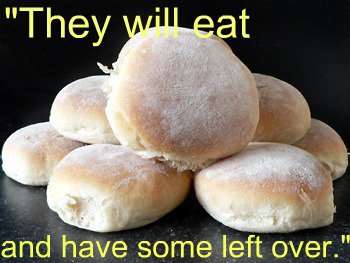Thoughts for the Day
Sunday, 28th July 2024: God's presence in ordinary things
2 Kings 4 Elisha Elijah Prophet God
Reading : Verses from 2 Kings, Chapter 4

A man came from A man came from Baal-shalishah, bringing food from the first fruits to the man of God: twenty loaves of barley and fresh ears of grain in his sack. Elisha said, ‘Give it to the people and let them eat.’ But his servant said, ‘How can I set this before a hundred people?’ So he repeated, ‘Give it to the people and let them eat, for thus says the Lord, “They shall eat and have some left.”’ He set it before them, they ate, and had some left, according to the word of the Lord. , bringing food from the first fruits to the man of God: twenty loaves of barley and fresh ears of grain in his sack. Elisha said, ‘Give it to the people and let them eat.’ But his servant said, ‘How can I set this before a hundred people?’ So he repeated, ‘Give it to the people and let them eat, for thus says the Lord, “They shall eat and have some left.”’ He set it before them, they ate, and had some left, according to the word of the Lord.
(Lectionary, New Revised Standard Version)
Thoughts
A few weeks ago we were looking at the Prophet Elijah, and after he was drawn up into heaven we saw the appointment of his successor, Elisha (see Elijah: 8 The Succession). Today we return to look at this new prophet. The first four chapters of the Second Book of Kings seek to establish Elisha as the legitimate successor to Elijah, with a number of miracle stories - a poor widow is given a jar of oil that never needs replenishing which ensures her family's survival; a couple's only son is restored to life; and poisonous food that is cooked and eaten is made safe and the men healed. Now we get the miracle of a small amount of bread and grain that feeds one hundred people. Each of these is a parallel to a story told during the life of his predecessor Elijah.
Most of us naturally link today's miraculous story to the Feeding of the 5,000 by Jesus (John 6.1-14), however, the context is different. At the time of Elisha there was famine in the land, and it's also a time of war. So the gift from the man from Baal-shalishah is an amazing gift. He brings the "first fruits", that is he gives food to the "man of God" while trusting that his second crop will be enough to feed himself and his family for the future. We should notice that the servant trusts that Elisha's word is true and there will be enough food for one hundred people, while Elisha trusts the word of the Lord is true.
The point of these miracles is not to show us how amazing the two prophets are, but to show us the power of God at work in the ordinary things of the world. Unlike those who want to divide spirit and matter and who see God at work in the spiritual world but not in the material world, Elisha knows that God is at work in our ordinary, everyday, realm. We, as well as Elisha, worship a God who cares for the poor, the sick, and the dispossessed, and who calls us to trust Him and work with Him.
Prayer
Lord God,
sometimes we expect to see You
in the big issues in our world,
but we need to learn to see Your hand
in the small and homely things in our life -
in the unexpected comfort from a friend;
in the support from a colleague at work;
or in the good news that arrives by text.
When we are stressed and anxious
may we lift our eyes to You
and be thankful for the little miracles.
Amen.
You might like to watch this short film of 'The widow and Elisha":